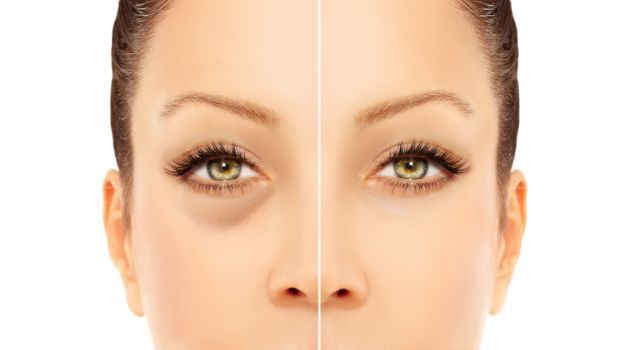Under Eye Dark Circles
Under eye dark circles
The skin around the eye is the most delicate on the body in fact, it is said to be up to 10 times thinner compared to the skin on the rest of the face. One common periorbital concern, with patients complaining of looking run-down, tired and older than their years, is dark under-eye circles. Dark circles are notoriously hard to treat, with a very small margin for error. They therefore all periorbital treatments should only be carried out by advanced practitioners with a thorough understanding of the anatomy of the area.
What causes dark circles?
There are many reasons why patients might appear to have dark circles under their eyes. The number one reason is hyperpigmentation of the skin and the second reason is to do with the anatomy of the area. As the skin is very thin, you don’t have a huge amount of subcutaneous or fatty tissue to bulk it out, therefore you are just looking at skin and blood vessels, which gives that dark appearance.
Anatomy and general ageing
In youth, the intersection between the lower eyelid and the check junction blends , and the area is naturally convex. But as we start to age, soft tissue breaks down, showing more of the underlying bone. By the mid 30s and early 40s, bony changes commence the eye sockets will start expanding, and the mid-face will start collapsing. The maxillary bone, which is responsible for projection of the anterior cheek, starts collapsing. Due to soft tissue and bony loss, the appearance of a dark circle worsens due to volume loss under the eye.
Hyperpigmentation
When it comes to hyperpigmentation around the eye, a huge contributing factor is ethnicity, with patients of darker skin types being genetically more prone to developing periorbital hyperpigmentation. Although Indians can have dark circles in their 20s, it is not common in fair skinned people.
Lifestyle
Lifestyle is another important factor to consider, as a dark under-eye can be a reflection of the patient’s general health. If a patient is in their 20s and has dark circles, it may be due to poor diet, anaemia, eye rubbing and late nights.
Consult a plastic surgeon
The key to treating the periorbital area is assessment; assessment is probably the most important step because it is crucial to figure out what is actually causing the majority of that darkness. For example, if it is more of a pigmentation problem, then you can treat the pigmentation either using peels, creams or lasers. If it is to do more with the appearance of the blood vessels, and they don’t have pigmentation, but they have got very thin skin, then you can treat this differently with the likes of injectables and Fat fill. And structural defects due to volume loss or under eye bags needs fat graft and surgical correction with Blepharoplasty.
Treatment options
The elimination of dark circles can be effectively achieved by volume augmentation of the tear trough, and this seems to be the most common treatment choice. If patients have hyperpigmentation we can create a camouflage treatment, where we use volumising product to reflect the light from the face, so you don’t see that shadow.
PRP
Another treatment option for this area is to use stem cells to regenerate the skin in the form of platelet rich plasma (PRP). The plasma is your own body’s growth factors and helps in repair of skin. It takes about three to six months to see the best results with multiple sessions. You will never get lifting or volume replacement like you would from dermal fillers or fat fill, but it does work nicely on the dark circles to provide skin rejuvenation.
Fat transfer
Using fat is another way of using stem cells in the tear trough, although this would require a surgical procedure. The advantage with fat is that it is what you would have had there in the first place, so you are replacing like with like. Because fat is full of stem cells, it can regenerate the skin to help with the dark circles and quality of skin in the long term.
Blepharoplasty
Blepharoplasty can address the fat bags or under eye bulges and also take care of excess skin seen with ageing. It can be performed without scar by trans-conjunctiva route and give the youthful look.
Creams
Various creams can address only the skin hyperpigmentation. The main ingredients in the cream are hydroquinone, Arbutin, Kojic acid, niacinamide. Also Topical caffeine and growth peptides have shown promising results for skin pigmentation.
Lasers
Various laser can be used in hyperpigmentation of skin like IPL, Q switch NdYag laser and RF. Pulse dye laser is particularly helpful in people with prominent vasculature in periorbital skin.
Say Good bye to tired look consult a certified Cosmetic Surgeon in Bangalore today.



+1.svg)
